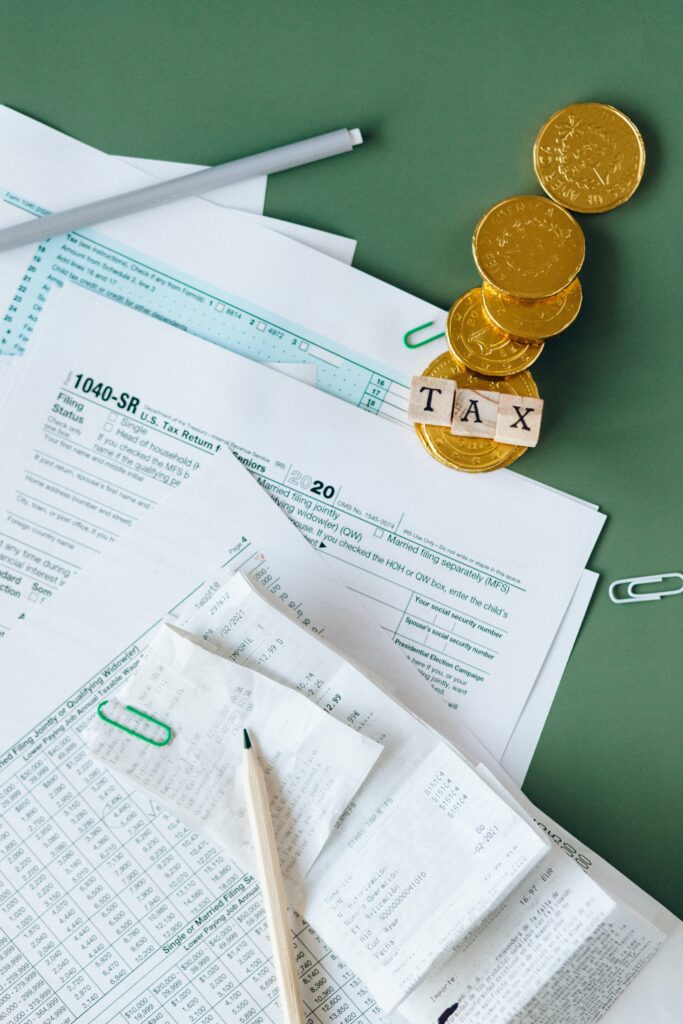5 Tips to legally Avoid Taxation on Your Revenus! Are you concerned about the taxation of your revenus? Don’t worry, we have the solution that most individual ignore. In this blog post, we will provide you with six useful tips to help you avoid taxation on your revenus for both self-employed and employee. With these tips, you can ensure that your revenus remain untaxed and you can keep more of your hard-earned money. Read on to learn more about how to avoid taxation on your revenus!
5 Tips to legally Avoid Taxation on Your Revenus
We list and recommend the most ethical options for you to retain up to 100% of your earnings. Here below is the table of content;
Table of Contents
1. Save your receipts

Receipts are a vital component to keeping track of your finances. The document of purchases you make can be used as proof of payment or for tax credits or deductions. Even small purchases, such as meals or office supplies, should be documented with a receipt. When it comes to taxes, there are certain things that need to be tracked for potential tax deductions, so saving your receipts is important.
Receipts provide the proof of what you spent, and that can translate into tax savings when filing your return. Your receipts can be used to back up deductions or credits you claim on your taxes. For instance, if you purchase a new computer for work, the cost may be able to be deducted from your taxable income. By having the receipt, you can easily submit it as evidence of your purchase. Additionally, when it comes to claiming credit on your taxes, it’s important to have the proper documentation.
This could include charitable donations, tuition payments, or medical expenses. As long as you have the proper receipts and can prove the expense was necessary and not already taken as a deduction, then you may be able to get a tax credit.
At the end of the day, saving your receipts is critical for making sure you don’t overpay in taxes. Keeping track of your spending through receipts will allow you to maximize your tax deductions and credits, which can save you money in the long run.
2. Know what is taxable

It’s important to know what kind of revenus is taxable and what kind is not. Generally, income you receive from wages, salaries, tips, commissions, interest, rents, and capital gains is taxable. Any money you earn from a business or trade, dividends, alimony payments, and unemployment compensation is also taxable.
Tax deductions are expenses that are taken out of your taxable income to lower the amount of tax you have to pay. Common tax deductions include charitable contributions, student loan interest, medical expenses, and childcare expenses.
When you’re filing your taxes, it’s important to know what you can deduct. Make sure you keep track of all receipts and records to help you take advantage of every tax deduction possible. If you donate items such as clothing or furniture to charity, be sure to ask for a receipt so you can use this as a tax deduction. Homeowners may be able to claim a tax deduction for mortgage interest payments and real estate tax payments when they file their tax returns. If you drive for work-related reasons, such as going to meetings or client sites, then you may be able to use these mileage deductions to lower your tax bill.
Other potential tax deductions include tuition fees, professional membership fees, and unreimbursed employee expenses. Additionally, if you’ve been unemployed for an extended period of time, you may be able to write off certain job search expenses. Finally, if you own a small business, then there may be additional tax deductions available for startup costs, advertising costs, and other similar expenditures.
3. Keep good records
Having good records is one of the most important tips for avoiding taxation on your revenus. Keeping track of your expenses and income is essential for any taxpayer. When filing your taxes, you’ll need to know what you earned, what you spent and what expenses you can deduct from your taxable income.
To make this easier, keep an organized filing system for all of your documents including receipts and invoices.
You should also save all tax documents that could potentially be eligible for a tax deduction. This could include charitable contributions, business expenses, medical costs, mortgage interest and more. Keeping track of these documents will help you get the most out of your tax deductions and lower your taxable income. Additionally, consider using tax preparation software or services to help you properly file and track your taxes.
For example, if you had a business expense such as new equipment for your company, you could take advantage of the tax deduction for that expense by filing the correct paperwork. This will lower your taxable income and reduce the amount of taxes you owe.
4. Get help from a professional

When it comes to taxes, you may want to consider getting help from a professional to make sure you get the most out of your return. A tax specialist can help you maximize your tax deductions and make sure you comply with all the rules and regulations. They can also help identify potential deductions that you may not have been aware of.
If you are self-employed or have investments, having a professional on your side can be a great way to reduce your tax burden. Make sure to research different tax specialists in your area and find one that has experience in dealing with your specific situation. Even if you are an employee, having a tax specialist look at your situation may be beneficial.
They may be able to find tax deductions that you are eligible for that your employer may have missed or overlooked. Having the help of a professional could mean the difference between an average refund and an exceptional one.
5. Stay updated on the rules

When it comes to avoiding taxation on your revenus, one of the best strategies is to stay informed on current tax laws. Tax laws change from year to year and it’s important to keep up with the latest updates so you can make sure you’re taking advantage of all the tax deductions available.
A good way to do this is to research online or consult a tax advisor to see if any new tax deductions or credits are available. Additionally, look into publications such as the IRS website, or professional tax magazines or newsletters. Keeping yourself in the know will ensure you remain up-to-date on any changes that could affect your finances and tax liability.
6. Structure your business in a tax-efficient manner

This tip only concerns self-employed. One of the best ways to reduce your tax burden is to set up your business in a way that takes advantage of available tax deductions. Having a tax-efficient structure for your business will allow you to legally minimize your taxes, without running into any legal trouble with the IRS.
There are various types of deductions you can use when it comes to structuring your business in a tax-efficient manner. Some of the most common include home office deductions, vehicle expenses, and charitable contributions. You should research all the available tax deductions that apply to your business, so you can make the most of them and save yourself some money on taxes.
In addition, setting up your business in a way that allows you to take advantage of certain types of tax credits can help you reduce your overall tax burden even more. Tax credits are generally a dollar-for-dollar reduction in the amount of taxes you owe, which can be very beneficial when it comes to reducing your taxes. You should speak with a professional tax preparer or accountant to determine which tax credits might be applicable to your particular business.
Overall, setting up your business in a way that takes advantage of available deductions and credits is a great way to reduce the amount of taxes you pay each year. It may take some time and research to find out which deductions and credits you’re eligible for, but it will be worth it in the long run if it means saving money on your taxes!

